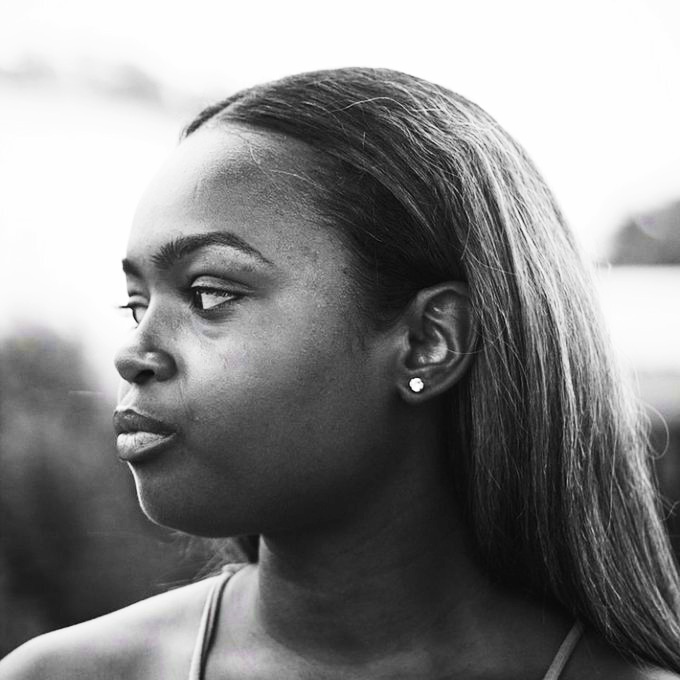Noname Finds Herself on 'Room 25'
Noname has another story to tell. In 2016, fans listened to the Chicago rapper’s critically acclaimed mixtape Telefone as she shared her thoughts about her grandma’s death, her self-worth and growing up in Chicago’s Bronzeville neighborhood. But the story on Noname’s debut album, Room 25, is quite different. It’s a captivating and relatable coming-of-age story about how the poetic rapper makes sense of her life after moving away from home. Throughout the album, Noname evokes a strong sense of confidence that only comes with growing from transformative experiences. Twenty-five seemed to be a pivotal year for Noname, who recently turned 27, and she invites listeners on a ride to her journey of self-discovery on Room 25.
“You really thought a bitch couldn’t rap, huh?”
Noname didn’t waste any time of reminding listeners of her poetic prowess. On “Self”, the album’s first track, she goes on a melodic lyrical assassination in which she boasts about why she should be taken seriously in hip-hop. Noname’s soft-spoken rhymes often lead some to believe that she isn’t a “real rapper” because her lyrics don’t subscribe to the loud and braggadocious rap standard. But, on “Self”, she brags about her album being the best, her sexual appeal, her rap skills--dressed by the rhetorical question“You really thought a bitch couldn’t rap, huh?”--- while exploring political issues and the current state of how Chicagoans feel about Kanye West’s fall from grace.
With “Self”, Noname eloquently displays her level of confidence and growth as a woman while making it loud and clear of how how highly she should be regarded in modern-day hip-hop. Noname explores a lot of concepts in the minute and thirty-four second-long track. And if all the songs on the album are metaphorical doors, then Noname uses “Self” as the key to unlocking all of them, thoroughly encompassing the aesthetic of Room 25.
“My pussy wrote a thesis on colonialism”
Room 25 explores a concept that wasn’t even remotely featured on Telefone—Noname’s sex appeal. And, as revealed in her recent interview with The Fader, that’s mainly because she hadn’t had sex yet. Noname brags about her sex appeal on almost every song in the album, and all of the references. Her references to her sexual appeal throughout the album range between being very braggadocious, like on “Self” with lines like “My pussy wrote a thesis on colonialism”, to her having regrets about her first sexual experience being tied to heartbreak.
On “Window”, which features vocals from Chicago musician Phoelix (who’s credited with the production on the album), Noname raps about being in a relationship with someone she didn’t love and how she felt empty about it. It’s highlighted by the by the very relatable verse, “I knew I didn’t love you, but I fucked you anyway. I guess a bitch like to gamble; I guess a bitch like to lonely”. She goes on to repetitively mention throughout the track how the single isn’t about the person with whom she was in a relationship, although it clearly is.
With “Montego Bae”, which features frequent Noname collaborator and Chicago artist Ravyn Lenae on the chorus, Noname raps about living her best life with a new lover she meets in Jamaica. That reality includes giving her new man some felatio when she raps, “Cause a bitch really bout her freedom, cause a bitch sucking dick in the new Adidas/And yes, and yes, I lick em up/ oh yes I really do”.
Her honesty about her sexual experiences on Room 25 are a refrain from the bubbly and precocious Telfone, in which she only mentions the sexual experiences of other women in her life (see: “Bye, Bye Baby). Not only is she rapping about having sex, she takes pride in having it while mentioning how she often made wrong decisions. Noname’s recent experiences with love and sex greatly reveal her growth as a woman while approaching nascent adulthood.
“Somebody hit D’Angelo, I think I need him on this one”
“Don’t Forget About Me” is the single that best reflects Noname’s journey to self-discovery. She replaced her Chicago home for the dreamy Los Angeles atmosphere. She’s had sex for the first time and experienced heartbreak. She’s broke. She’s broken. She’s astonished that fans credit Telefone with saving their lives because her own life is in shambles. She even pleads for D’Angelo’s help with this single because it’s reminiscent of the same neo-soul, drunken bluesy sound that created the magic of “Voodoo”. And, while dealing with all the formalities of adulthood, Noname’s wish is for her family to not forget about her.
“Don’t nobody got no holy, everybody got an iPhone”
There are only two songs on Room 25 in which Noname doesn’t reflect on her new experiences. Instead, on “Blaxploitation” and “Prayer Song”, she reflects on the current affairs of America. “Blaxpoitation”, which samples audio from two blaxpoitation films, addresses the many stereotypes of black people, their impact on this country and the negative effects they have on the black community. Noname mentions how those stereotypes keep her up at night when she raps, “I’m struggling to simmer down, maybe I’m an insomni-black/ Bad sleep triggered by bad government.”
On “Prayer Song”, Noname highlights the hypocrisy of religion being the foundation of America. Instead, as reflected by the line “don’t nobody got no holy, everybody got an iPhone”, Noname argues that capitalism is the heart and soul of America’s rhythm. She wants to say a prayer for this country, but she’s not sure if even that will help bring peace.
The essence of Room 25 is that it functions as a cautionary, yet beautiful tale of blossoming into black womanhood. Nonames warns about the fallacies of love, sex and the American dream while emphasizing the importance self-love. If “Telefone” was a conversation about Noname’s thoughts and life experiences, then Room 25 is certainly a stream of consciousness art in which the rapper learns from those experiences to cultivate her own identity, unapologetically.

